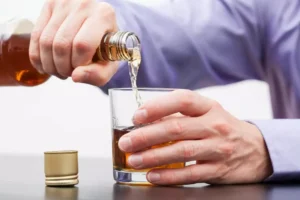
We provide personalized addiction services to those struggling with drugs and alcohol and are dedicated to making treatment accessible to everyone in need. Everyone deserves the highest quality of treatment, marked by clinical excellence, and our approach to treatment allows Alcoholism Treatment Program individuals to work toward recovery in a safe, supportive and welcoming community. Below is a list of some of the providers who are typically involved in alcohol treatment and the type of care they may offer. See 10 recommended questions to ask treatment programs in Step 2.


Once you leave a rehabilitation program, you may face challenges and temptations that can lead to relapse. Aftercare programs are designed to give individuals ongoing assistance and continued support to maintain long-term sobriety. Three medications are currently approved in the United States to help people stop or reduce their drinking and prevent a return to drinking.
It’s natural to want to help, but sometimes our efforts can actually make the problem worse. Learning to differentiate between helping and enabling is crucial for both you and your loved one’s well-being. The impact on personal and professional life can be profound. Relationships might start to crumble under the weight of broken promises and unpredictable behavior.
You might be more likely to find a local program than you would if you sought care from an inpatient program. These programs are less intense than inpatient programs but still require commitment from participants. If you are seeking treatment for yourself, you are taking an important step in your route to recovery. You may wish to ask someone you trust to help you through the process and for support along the way.
These medications are prescribed by a primary care provider or other health care provider and may be used alone or in combination with counseling. Also, be sure to look for the other types of treatment providers— alcohol treatment programs and board-certified addiction doctors. Primary care and mental health providers can provide effective AUD treatment by combining new medications with brief counseling visits. Behavioral therapies and medications are two valuable treatment tools for alcohol use disorders. As part of a comprehensive treatment program, mutual support groups add another layer of support and can increase the effectiveness of treatment. Ideally, health care providers will one day be able to identify which AUD treatment is most effective for each person.

Let’s dive into the world of alcohol addiction treatment and explore the path to recovery together. Many people with alcohol problems and their family members find that participating in support groups is an essential part of coping with the disease, preventing or dealing with relapses, and staying sober. Your health care provider or counselor can suggest a support group.
The Assistant Secretary for Mental Health and Substance Use Dr. Delphin-Rittmon speaks to the millions reclaiming their lives from substance use and mental health conditions. Naloxone is a safe medication that can reverse the effects of an opioid overdose. Learn about the services and resources below to help keep your community safe.

But what if you can’t take time away from work or family responsibilities? These programs allow you to receive treatment while still living at home and maintaining your daily routines. It’s a more flexible option, but it requires a strong support system and commitment to recovery. Once detox is complete, many people move on to inpatient rehabilitation programs. These are intensive, residential programs where you live at a treatment facility for a period of time, usually 30 to 90 days.
Hall said the program in Parramore could continue past one year, if they demonstrate success, but the county would likely have to pitch in its own government funds for that to happen. This is the largest listing in the United States of licensed professional therapists. Screen4Success provides an easy way for https://ecosoberhouse.com/ parents and caregivers to identify areas where their children may benefit from additional support. 24/7, 365-day-a-year crisis counseling and support to people experiencing emotional distress related to natural or human-caused disasters. Lastly, it’s important to address codependency and enabling behaviors.
OR CALL OUR OFFICE (812) 378-5595